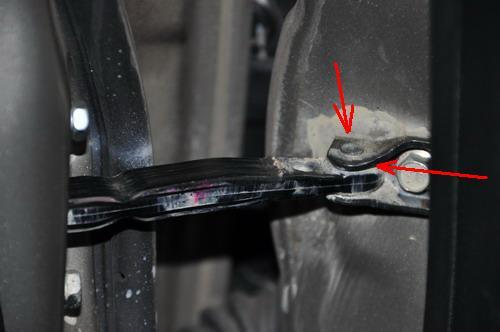
Do door locks and hinges need to be lubricated?
From time to time, you need to lubricate the door locks and hinges of the car. Use silicone spray, white lithium grease, or graphite to lubricate door hinges.
Any moving component requires lubrication, especially door locks and hinges. Door locks and hinges on cars, trucks and SUVs are often used and can wear out over time. Proper lubrication of locks and door hinges helps prolong their life and service life, reduce rust, and reduce the chance of mechanical breakdowns and costly repairs.
Door locks and hinges are among the most neglected parts of a car. Although modern cars are usually built from parts that have a special coating to reduce the risk of rust and contamination, they are still made of metal. By the time you realize they need care, they often already cause problems such as sticking or not being able to open and close.
However, properly applying the recommended lubricants to your vehicle's locks and door hinges can prevent problems in the future.
Type of lubricant used
The lubricant you will use on car locks and hinges depends on the material the lock is made of. Most hinges are made from steel or aluminium. Generally, four different types of lubricants should be used.
- White lithium grease is a thicker grease that repels water, which is the main cause of rust and corrosion. It sticks to the places you apply it and withstands harsh conditions like rain and snow. It is designed to work on metal parts such as hinges and latches.
- WD-40 is a lubricant used for many household items as well as automotive parts. It is designed for light lubrication or for peeling off areas. This can help remove rust on automotive hinges and latches.
- Silicone spray is gentler and lubricates areas containing non-metallic parts. Safe to use on nylon, plastic and other materials. Use it for light lubrication.
- Graphite grease works best for locks because it does not attract dust and dirt that can damage the lock mechanism.
Special use of lubricants for hinges and locks
On most hinges, a penetrating lubricant such as WD-40 is safe on old steel hinges. On modern vehicles, specialized greases made specifically for joints, such as white lithium grease, are best suited. Graphite grease is recommended for car door locks because it doesn't attract dust like oils do, which can damage fragile lock components.
Silicone spray is ideal for plastic or nylon (or metal when a small amount is required). White lithium grease is a popular choice for metal parts such as hinges. It helps repel water and lasts longer in harsher environments. Not recommended for plastic or materials other than metal because it is too hard. Graphite grease comes in a tube. All you have to do is squirt a small amount into the door locks. Don't forget to lubricate the trunk lock as well.
Lubricating your car's hinges and locks only takes a few minutes and can be done two or three times a year. You can also ask a professional mechanic to take care of this work as part of your vehicle's routine maintenance. By properly caring for your vehicle, you can prevent many repair problems that result from long-term or regular use.
